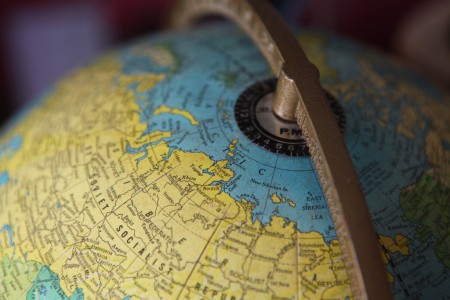
The concept of ‘just war’ is one with deep roots in philosophy and law – a recognition that while wars are inevitably terrible, sometimes they are less terrible than the alternatives available. While it may have been incongruous of Barack Obama to use his Nobel Peace Prize address to discuss the subject, it was probably the only reasonable thing he could do, given his commitment to a sustained (but shrinking) presence in Iraq and his re-commitment to the war in Afghanistan. Indeed, when I first heard about the decision of the Nobel committee, I thought Obama’s best choice would be to graciously decline the prize, saying that he had not yet accomplished anything worthy of it, and was involved in the prosecution of two wars, to boot.
Obama’s sketch of the philosophy of just war includes elements of both jus ad bellum – the question of when it is right to go to war – and jus in bello – the question of how to rightly conduct yourself during war:
The concept of a “just war” emerged, suggesting that war is justified only when certain conditions were met: if it is waged as a last resort or in self-defense; if the force used is proportional; and if, whenever possible, civilians are spared from violence.
He also stresses how the elimination of violent conflict is not a plausible aim, for the decades ahead:
We must begin by acknowledging the hard truth: We will not eradicate violent conflict in our lifetimes. There will be times when nations – acting individually or in concert – will find the use of force not only necessary but morally justified.
He discusses the ways in which contemporary conflicts differ from those in more distant history, describes how American military strength has helped to maintain international stability in recent decades, and argues that some enemies can only be effectively confronted with violence. He also expresses support for the concept of humanitarian intervention, arguing that in cases like the Balkans, it can be justified to use force to stop crimes against humanity, even when doing so is a violation of traditional notions of state sovereignty
At the same time as he argues for the occasional necessity of war, Obama recognizes that war always involves horror:
So yes, the instruments of war do have a role to play in preserving the peace. And yet this truth must coexist with another – that no matter how justified, war promises human tragedy. The soldier’s courage and sacrifice is full of glory, expressing devotion to country, to cause, to comrades in arms. But war itself is never glorious, and we must never trumpet it as such.
Obama’s solution, for reducing the degree to which war is terrible and frequent, is to increase the strength of international institutions, though he doesn’t go so far as to say that the United States will never act unilaterally.
Obama brings up the issue of nuclear proliferation, but does not specify how far he would go to prevent it or roll it back:
One urgent example is the effort to prevent the spread of nuclear weapons, and to seek a world without them. In the middle of the last century, nations agreed to be bound by a treaty whose bargain is clear: All will have access to peaceful nuclear power; those without nuclear weapons will forsake them; and those with nuclear weapons will work towards disarmament. I am committed to upholding this treaty. It is a centerpiece of my foreign policy. And I’m working with President Medvedev to reduce America and Russia’s nuclear stockpiles.
But it is also incumbent upon all of us to insist that nations like Iran and North Korea do not game the system. Those who claim to respect international law cannot avert their eyes when those laws are flouted. Those who care for their own security cannot ignore the danger of an arms race in the Middle East or East Asia. Those who seek peace cannot stand idly by as nations arm themselves for nuclear war.
Earlier, he talks about developing “alternatives to violence that are tough enough to actually change behavior”, but he does not follow through and explain at what point sanctions should be abandoned in favour of the use of force, though perhaps that question is always too complex to answer with a general formula applicable to all circumstances.
All told, the speech is a thoughtful and defensible one that tries to reconcile principle with pragmatism. At its best, the United States is a key force for stability in the world, as well as the promotion of democracy and human rights. At the same time, it is very plausible that the relative power of the United States will continue to fall, producing difficult new situations in which to make foreign policy.
Obama doesn’t mention the difficulties of domestic politics – one major factor that has hampered him in trying to close down Guantanamo Bay – but that is certainly one of the biggest factors constraining his freedom of movement. Obama has certainly disappointed a lot of people by not changing foreign policy as swiftly or dramatically as they would have liked. It is not entirely clear to what extent that is the product of him being president, rather than a candidate; to what extent it is the result of domestic constraints; and to what extent it is the result of other factors. He closes in saying: “Clear-eyed, we can understand that there will be war, and still strive for peace.” It remains to be seen how that aspiration will stand beside the totality of his record as president.








